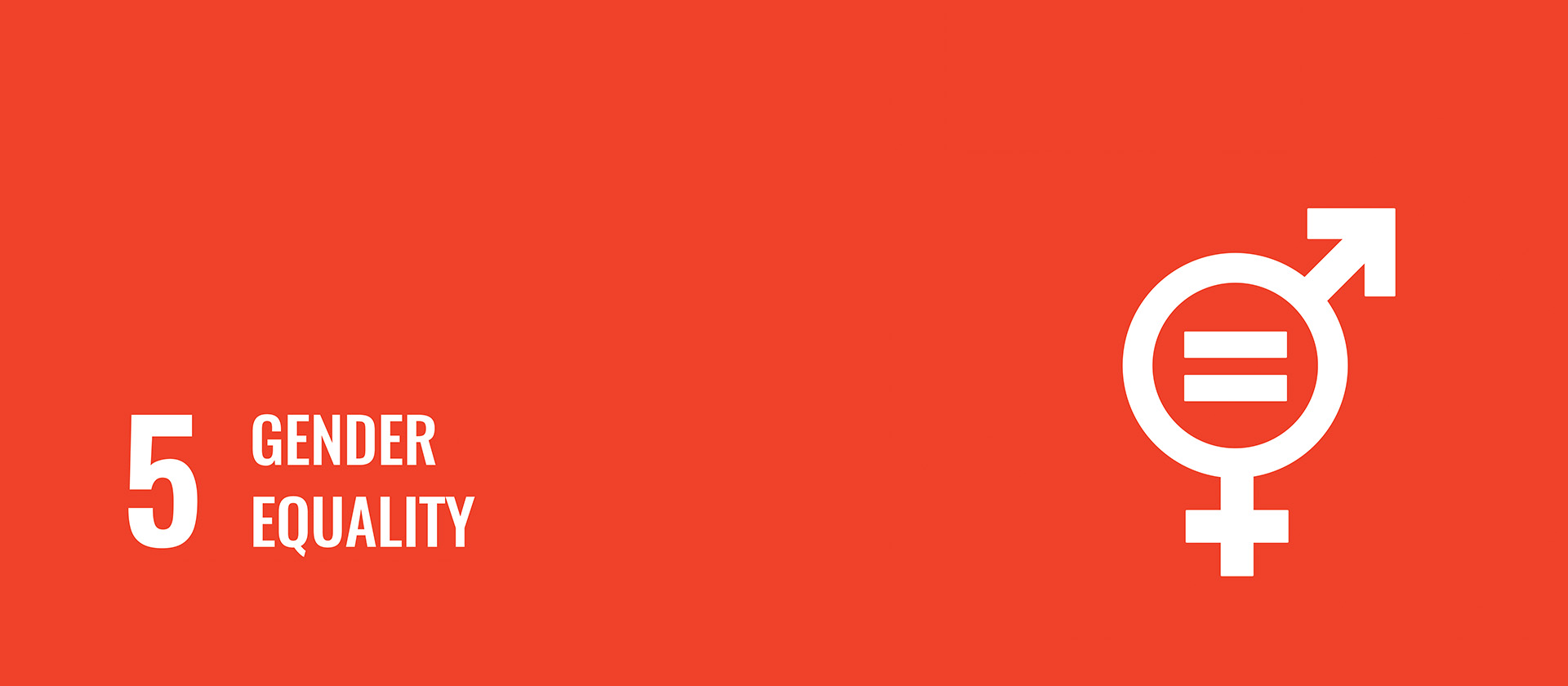In recent decades there have been some improvements in gender equality. More girls are attending school and fewer girls are forced into early marriage. There is an increasing number of women in political office and working in powerful roles. Despite this, social norms and laws that still discriminate do not help to resolve this issue.
Women often support the family unit by providing unpaid care for children and elderly family members. Women often are employed in low-skilled jobs in the most fragmented employment sectors, with poor pay and conditions. Within, the last year it’s been noted that a significant increase in domestic violence has occurred against women and girls. The pandemic has further isolated those most vulnerable and at-risk and has been a barrier to them receiving support.
find out more about Goal 5: Gender equality.
Teaching and learning
Gender equality is at the forefront of many teaching modules at the University of Liverpool. Students are able to explore the topic of general equality from a number of different perspectives within course modules. Examples of course modules that have a direct or indirect focus on Gender Equality (as assessed by students) include:
- Media and human rights (COMM317)
- Gender and global politics: Women, peace and security (POLI349)
- Equity & Trusts (level 3) (LAW311)
- Law and Gender (LAW384)
- Equality, Diversity and Inclusion in Organisations (ULMS226)
- Gender and Feminist Politics: Core Concepts and Theories (POLI257)
- Gender and Global Politics: Women, Peace and Security (POLI349)
We recognise that there is much more to do to equip students with the knowledge and skills that they need to make a contribution to achieving this global goal. Working with the Guild of Students our undergraduate and postgraduate students have the opportunity to audit their curriculum modules for their relevance to SDG5: Gender equality and to make recommendations for changes to the course content. For more information on how students can get involved see the Guild curriculum audit report.
The University has also established a Culture and Community Working Group. This group brings together academics, students and representatives from our Centre for Innovation in Education to develop a strategic plan for embedding SDGs into the curriculum including SDG5.
There are also a number of ways that students can support the aims and objectives of SDG5 through extra-curricula activities, including through volunteering opportunities provided by the Guild of Students.
Research and knowledge exchange
The University contributes to the identification of the root problems that gender equality causes and the potential solutions across many areas of research. Some key examples are:
- How Women's Rights Became Human Rights: Gender, Socialism and Post-socialism in Global History, 1916-2017
- The Sanyu Research Unit - postgraduate research degrees
Leadership, governance and professional services
Examples of leadership, governance and professional services include:
Career confidence for women
Career Confidence for Women is an initiative developed with the aim of enhancing career prospects for female students and addressing the challenges employers face in attracting a diverse workforce. The goal of the programme is not for participants to find employment with one of the employers involved. There is substantial research that suggests that lack of confidence in their own skill-set is often a barrier to women applying for certain roles. Therefore, we wanted to offer the opportunity to develop this confidence around career-related skills. To have maximum impact, we created a programme for students in their 1st or 2nd year of study, with input from employers representing a range of industries. The content of the programme is spread out over the duration of participants’ degree courses, to foster a long-term connection with both Careers and Employability, employers and fellow programme participants. The programme included the following:
- Themes were decided by ECT but delivered by employers. The materials were worked on jointly between our team and the employers
- Networking sessions with employers
- Each student is assigned a mentor from one of the participating employers. ECT lead gathers information about the students and the mentors to facilitate a matching process
- The inaugural term consists of at least five sessions, with one event planned during each term for this group until they graduate
- To measure success, in the short term we will rely on surveying the students and checking how they feel they are progressing in confidence, on a scale of one to five. In the long term, we will collate data on the graduate outcomes of these students to monitor success.
This is a Higher Education Achievement Record (HEAR) activity for those who submit a 200-word justification as part of their application, join all sessions and connect with their mentors.
Athena SWAN
The Athena SWAN was established in 2005 to encourage and recognise the commitment to advancing the careers of women in science, technology, engineering, maths and medicine (STEMM) employment in higher education and research. In May 2015, the charter was expanded to recognise work undertaken in arts, humanities, social sciences, business and law, in professional and support roles, and for trans staff and students. The charter now recognises work undertaken to address gender equality more broadly, and not just barriers to progression that affect women. The University joined the Athena SWAN charter in 2009 and was recognised with an Institutional Silver award in 2016.
Back to: Sustainability
